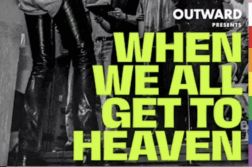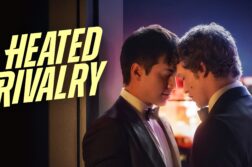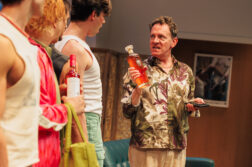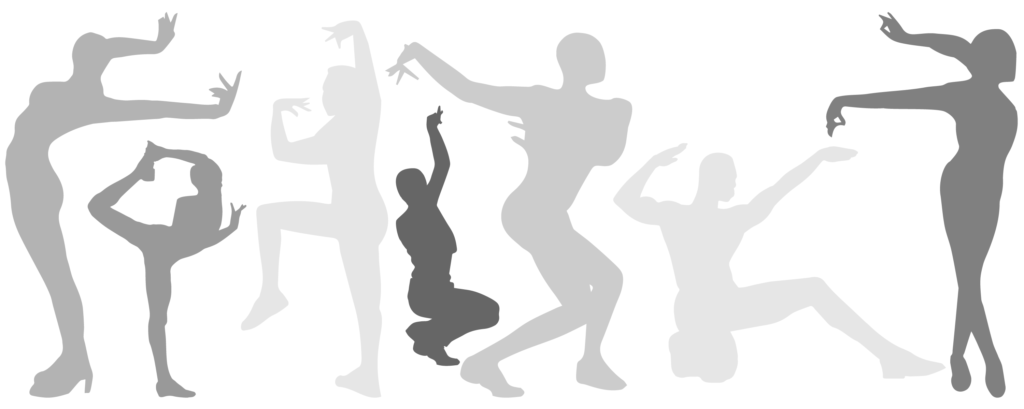
Before Pose, there was the awarding-winning documentary Paris is Burning (1990), and before director Jennie Livingston decided to chronicle ball culture, it was already thriving. The ballroom scene is one of the hottest institutions of both gay and pop culture and the lingo is ubiquitous and fierce!
The language of the ballroom scene has exploded into mainstream culture like never before. Everyone loves to throw shade, read, vogue, and dip all day. RuPaul’s 1993 hit song “Supermodel (You Better Work)” had even middle-aged white suburbanites saying “Work!” That expressive lexicon still sashays from the lips of today’s RuPaul’s Drag Race contestants: “Yas, queen! Sissy that walk!
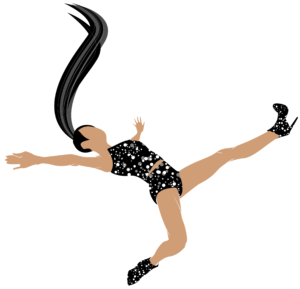
Mother is serving realness, children!” Instagram videos of legendary ballroom walker Leiomy “Wonder Woman of Vogue” Maldonado warrant grander comments like “slay” and “muva,” as she devours duckwalks and dips. Gay bars echo with laughter while friendly greetings of “Hunty” and “Sis, spill the T,” fill the room. And, on occasion—especially after a drink or two—a “Child, please, don’t come for me,” or a sly “You shady bitch,” make their entrances.
These ballroom phrases have been appropriated by both the larger LGBT community and mainstream culture. They are monetized, branded on clothing, and heard in the latest music. However, most people don’t know these words were brought to life by Crystal LaBeija, Dorian Corey, Paris Dupree, Kim Pendavis, Junior LaBeija, and countless members of the Houses of Corey, Dior, Wong, Christian, Ebony, Omni (UltraOmni), and others. These words come from the Black and Latinx gay and transgender communities, from the ballroom scene that originated in Harlem, New York City.
Ballroom vernacular has indelibly impacted the larger LGBT community. The ability to modify and explore the dynamics of language to enhance an inclusive culture—one that allows freedom of gender and sexual expression—pierces through the heights of creativeness. At the root of this language, now woven through mainstream society, is a deep and complex history of hate, racism, discrimination, and oppression. Ballroom vernacular is a language born of people facing systematic attacks for being both a person of color and queer.
The ’70s extravagant Harlem ballroom was created because the predominantly white gay balls discriminated against Black and Latinx queens who competed in the pageants. In The Queen, a documentary highlighting the American drag ball circuit and official 1967 drag pageant competition, drag performer Crystal LaBeija shows her dissatisfaction with the judges’ decision to eliminate the contestants of color and crown a white drag contestant. Crystal scorned the producers, the commentator, and contestants for this unfair treatment: After being told she was “showing her color,” Crystal had a profound clapback, saying: “My color is beautiful!” This moment signaled the birth of the new Harlem ballroom scene that specifically featured marginalized Black and Latinx queens ignored by the predominantly white gay balls.
Racism and discrimination are at the root of American history. For centuries, Black people were not allowed into white spaces nor, by extension, were Black and other queer and trans people of color welcomed into white gay spaces. Harlem’s highly energized balls featured categories in which Black and Latinx people of diverse gender identities and expression—butch queens, femme queens, drag queens, butches, transgender men and women—could walk, or compete, for highly coveted prizes, trophies, and titles. House culture was built on chosen families—family groups that, while not biologically or legally related, forged bonds that felt like and fulfilled the same purposes as a family unit. These houses were created because Black queer people’s biological families often disowned them. The houses, led by a house mother or house father, would provide younger members a supportive, nurturing network to live in freely and authentically.
Using ballroom vernacular, pop superstar Madonna’s chart-topping song “Vogue” started a “new” international craze. After visiting the New York underground dance clubs and balls, Madonna extracted the language and dance of the ballroom scene and brought it to the mainstream. This is only one of many examples of how outsiders annexed and capitalized on ballroom language.
Many white members of the queer community, and in pop culture, have adopted language created for Black spaces and for queer and trans people of color, language that describes the unique identities and experiences of these communities. The words, however, are sometimes used in exaggeration and incorrectly, causing the ballroom community to lose ownership of their language that has been co-opted.
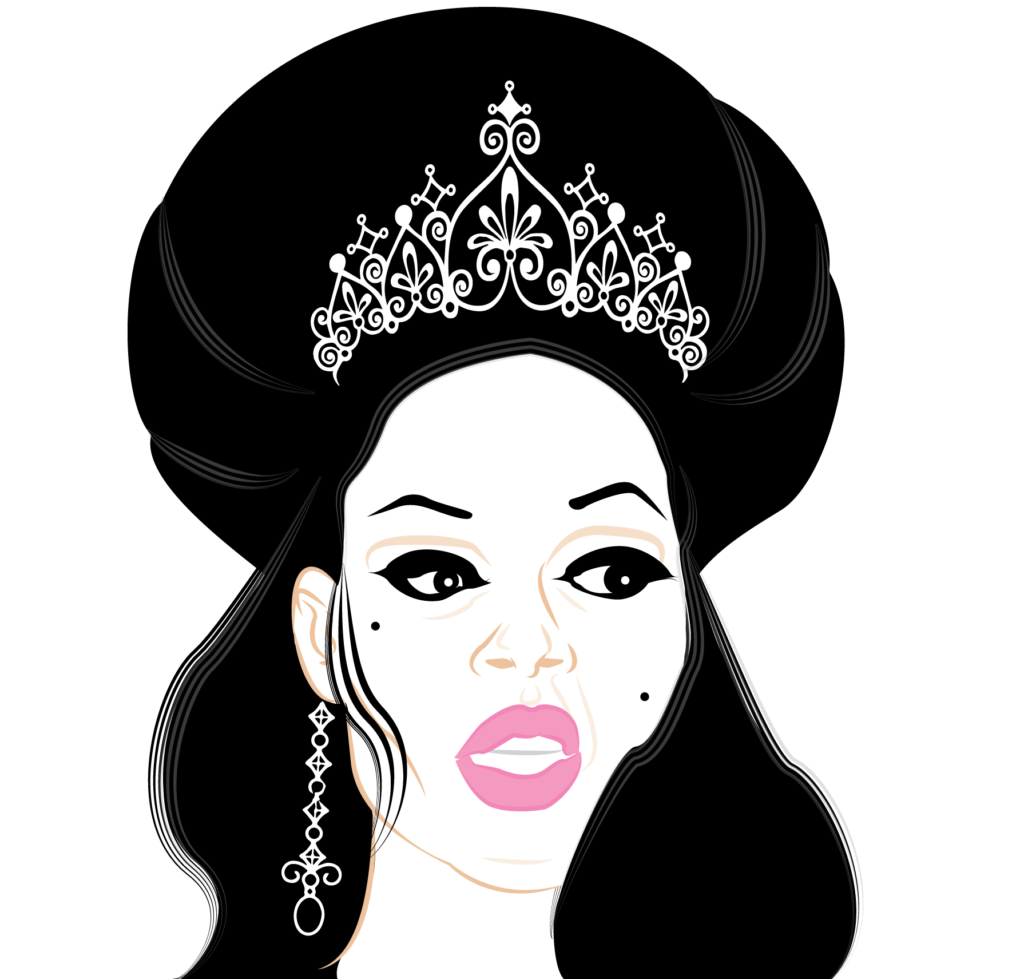
Similarly, internationally popular platforms like RuPaul’s Drag Race, Pose, Legendary, Queer Eye, and celebrities like Beyoncé, Lady Gaga, and even Justin Bieber, have been instrumental in mainstreaming ballroom language. Consequently, a range of people are all conversant with throwing shade and saying “Yas, queen!”
Correspondingly, as the lines between mainstream and ballroom culture continue to blur, the community and its history is stripped of its power and silenced. Cultural appropriation, a violation of the intellectual and artistic property of a culture, has a devastating impact. Appropriation takes the styles and traditions (i.e., language, fashion, dance) of a marginalized community without permission or even acknowledgment of their origins. Cultural appropriation erases heritage and creates false historic interpretations. Fans of celebrities who appropriate ballroom vernacular—who do not watch Drag Race or Pose—have no idea where the language used by their beloved stars comes from. This is an erasure of Black and Latinx queer culture, even when it’s unintentional.
Silencing and erasure take place when culture is not documented, reported, or acknowledged. There is a tendency to dismiss undocumented experiences when they are inconvenient—to erase the facts, the people, the history. It seems that scholarly documentation is the only way to define and validate ballroom language, tradition, and culture.
In the ballroom lexicon, words, idioms, expressions, and tonalities are created to articulate the unique experiences of this culture. This language is needed for survival, protection, and affirmation. The carefully crafted expressions of Black and Latinx gay and trans communities similarly reflect a nuanced sophistication in linguistic codes unmatched by mainstream society. Unable to compete, mainstream culture adopted the language—a rich and vibrant language, indeed.
Yas, the language and history of courageous Black and Latinx queer communities should be celebrated, respected, and preserved. They should be credited, and homage should respectfully be paid to a community that exercises its freedom of expression daily. Today, ballroom culture and houses have expanded all across the country and internationally in cities like London, Paris, St. Petersburg, Hong Kong, and Auckland. The scene continues to create language that articulates their journey with identity and expression and tells their truth.
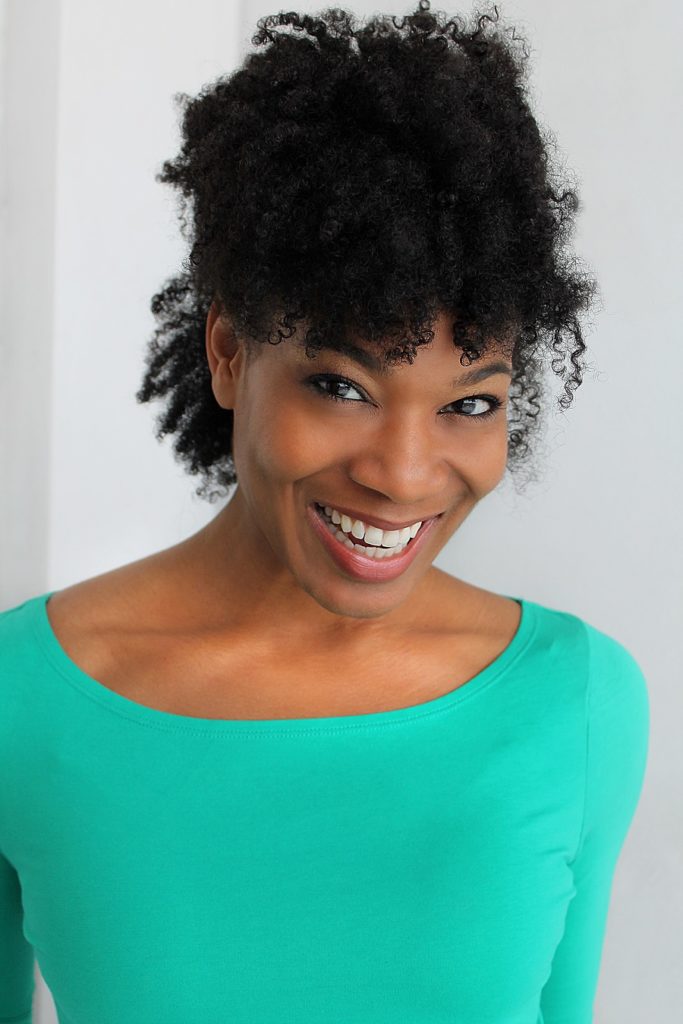 Chloe O. Davis is a proud Black bisexual woman and debut author who works in the entertainment industry in New York. A graduate of Hampton University and Temple University, she has centered her creative platform on amplifying the narratives of Black culture and heightening the awareness of the LGBTQIA+ community. Davis’s work as a dancer, actor, and creative has allowed her to travel to all fifty states and internationally where she spent fifteen years researching, writing and creating The Queens’ English, The LGBTQIA+ Dictionary of Lingo and Colloquial Phrases. Davis celebrates the etymological diversity of over eight hundred terms used to describe the collective gay and queer experience and believes The Queens’ English is a starting point for important conversations around inclusivity, sexuality, gender expression and identity.
Chloe O. Davis is a proud Black bisexual woman and debut author who works in the entertainment industry in New York. A graduate of Hampton University and Temple University, she has centered her creative platform on amplifying the narratives of Black culture and heightening the awareness of the LGBTQIA+ community. Davis’s work as a dancer, actor, and creative has allowed her to travel to all fifty states and internationally where she spent fifteen years researching, writing and creating The Queens’ English, The LGBTQIA+ Dictionary of Lingo and Colloquial Phrases. Davis celebrates the etymological diversity of over eight hundred terms used to describe the collective gay and queer experience and believes The Queens’ English is a starting point for important conversations around inclusivity, sexuality, gender expression and identity.


